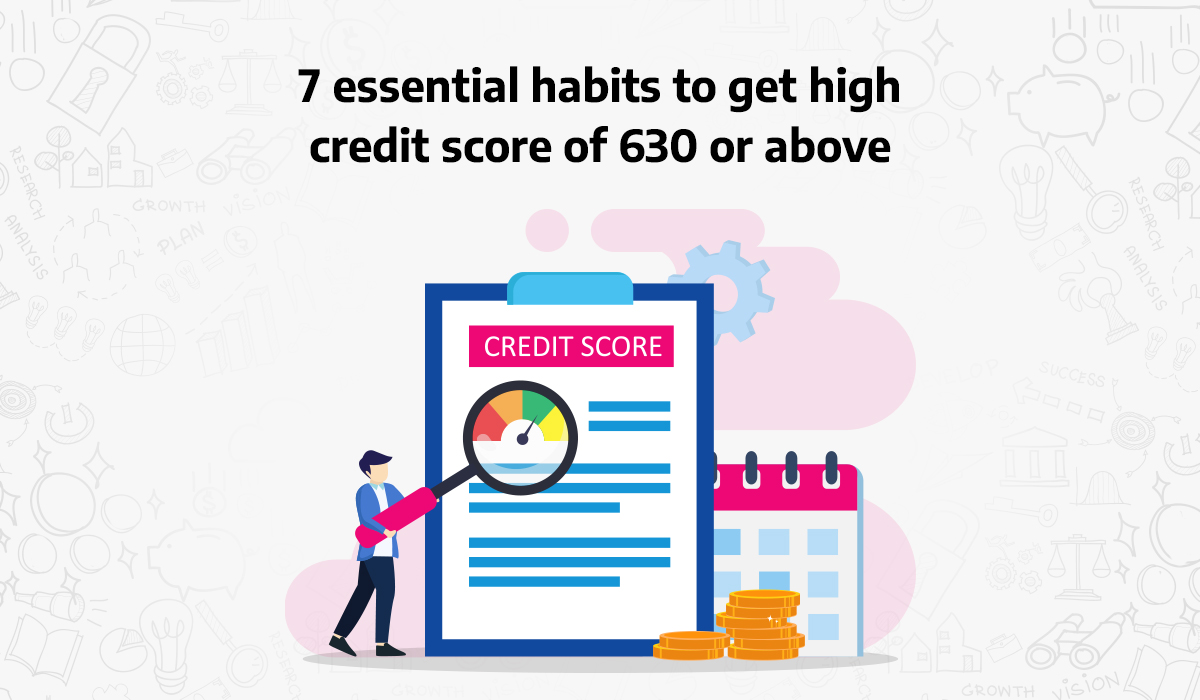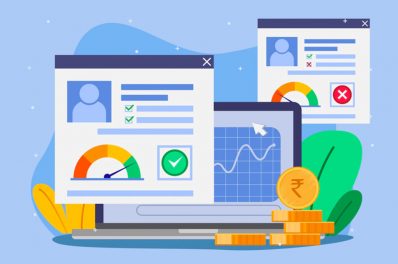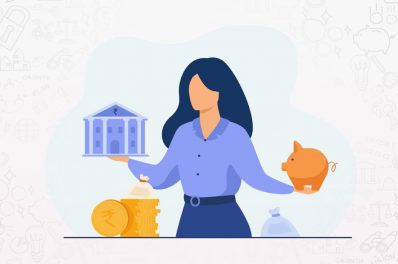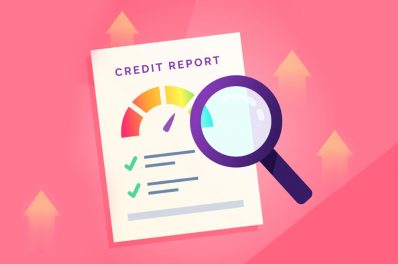
Your credit score is one of the most crucial parameters based on which lenders determine your credibility and creditworthiness.
Ranging from 300 to 900, the higher your credit score is, the higher chances you have of getting loan approval at competitive interest rates. Are you planning to apply for a loan?
If yes, then first of all check your credit score and ensure that it is at least 630 or above. This number is what most lenders expect from their borrowers. If you want to improve your credit, adopt these 7 habits that can help you increase it over time.
1. Pay Your Bills on Time
Your payment history is one of the most influential factors affecting your credit score. So, always stay on top of your credit card bills and loan EMI payments. Even a single late, or missed payment can deduct your credit score by a few points. Most people with a credit score of 630 or higher have no late payments in their credit report.
To ensure timely payments, consider activating an e-mandate or setting up automatic payments from your bank account. You may also set up reminders on your smartphone regarding your upcoming due dates. However, ensure that you have money in your account before the due date. Otherwise, you will dishonor your mandate and harm your credit score even more.
2. Keep a Watch on Your Credit Utilisation Ratio
Credit utilisation ratio is the proportion of the credit limit you use up on an average. It is another significant component of your credit score. Highest credit score achievers use only 10-20% of the credit limit available to them.
There is no hard-and-fast rule to describe the optimum credit utilisation ratio. However, in general, you should not exceed more than 30% of your credit limit. The lower ratio you maintain, the better it will be for your credit rating. When you check your credit score, and it is low because of the high credit utilisation ratio, you can reduce it by making minimal use of your credit card. You may also request a credit limit increase, but be sure not to increase your expenses too.
3. Keep Your Balance Low
Keep your credit card balance as low as possible. The key is to firmly control your expenses, buying only the things you can pay for by the month’s end. Try to pay your credit card bill in full each month. Doing this can prevent incurring interest from piling up, helping you stay updated with the bill payments.
4. Let Credit Build Up Over Time
Your credit score also depends on the number of years you have been handling credit. Most high scorers have a responsible credit history of 10-12 years. However, you can still maintain a high credit score even if you are a new credit user. The length of your credit history is an integral component of your credit score.
If you have just started building your credit history, begin by making small purchases using your credit score and paying the entire bills on time regularly. One trick is to retain your old accounts even if you no longer use them. Doing this can not only prolong your credit history but also keep your credit limit high. If you close an old account, you will lose its credit limit and harm your credit score.
5. Apply for a Loan Sparingly
Applying for several loans and credit cards within a short period projects you as a high-risk credit-hungry borrower. Each time the lenders your credit score, your actions will show up on the report.
If several inquiries appear on your credit report, it may ding your score and reduce your creditworthiness. One tip for credit without affecting your credit score is to keep a gap of minimum 6 months between applications.
Also Read: 10 Simple Ways to Increase Your Credit Score in India
6. Keep Credit Profile Diversified
Lenders want to see that you can manage different types of credit responsibly. Therefore, you must bring diversity in your credit profile by taking different credit types, including secured, unsecured, short-term, and long-term loans.
However, don’t forget to maintain a gap between applications. Do not apply for several loans and credit cards all at once to diversify your credit profile, as it will only reduce your credit score instead of benefitting it.
7. Monitor Your Credit Score and Reports
By monitoring your credit score and report, you can stay updated about any negative changes taking place in your credit history. If there is a mistake in your credit report, you can quickly identify it and get it corrected to reduce its effect on your credit rating. Credit bureaus are obliged to give you one credit report in a year for free. You must scan it thoroughly to identify any errors or know why your credit score is low.
When you check your credit score and go through your credit report, look for common errors that may hold your score down. Such errors include incorrect credit limit, account you did not open, the wrong PAN, closed account still showing as open, wrong delinquencies reported, and others. If you spot any such errors in your credit report, dispute them with the credit bureau and get them resolved immediately. Once they are eliminated from your report, you will get an instant boost in your credit score.
Don’t know how to check credit score? You will find many credit score-checking tools on the internet. One such tool is offered by Clix Capital here. You need to provide a few essential details about your identity and communication, and you can get your Experian credit score online.
Apart from helping you calculate your credit score, we are also a reputed lender offering personal loan and business loans in India. If you have a credit score of 630 or above, you can check our eligibility conditions and apply for a loan you want.
For any queries, find us on Facebook, Instagram, LinkedIn, Twitter, or WhatsApp.
You can also reach us at hello@clix.capital.com or call us at +91-120-6465400.T&C Apply*.








